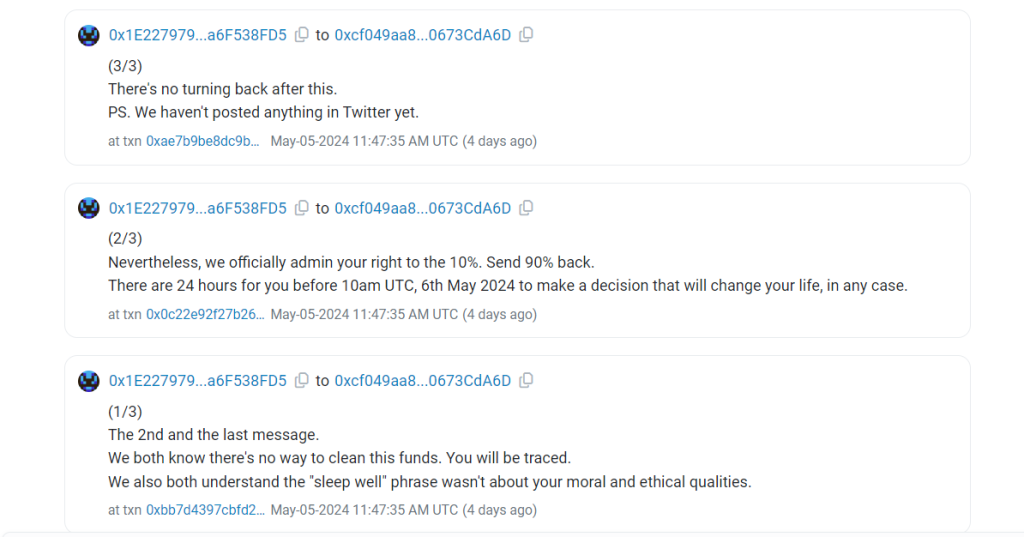Attacker Returns $153,000 Worth of Ether to Victim After Stealing $68 Million
Attacker Returns $153,000 Price of Ether to Sufferer After Stealing $68 Million
An attacker fascinated by a $68 million address poisoning scam has exhibited a gesture of goodwill by returning $153,000 price of Ether to the sufferer.
The address-poisoning attack in the open saw the attacker tricking a user into transferring $68 million price of Wrapped Bitcoin (WBTC), which has taken a new twist with the novel form-hearted act of returning a allotment of the stolen funds.
Attacker Expressed Willingness To Negotiate
The attacker, working beneath the alias “FakePhishing327990” on Etherscan, despatched $153,000 Ether to the sufferer, accompanied by a message expressing willingness to negotiate and searching for communication via Telegram.

Blockchain knowledge presentations that the sufferer, identified by their fable ending in 8fD5, initiated communication with the attacker. The sufferer proposed a resolution wherein the attacker would return 90% of the stolen funds in change for a 10% bounty and a dedication to chorus from honest action. The sufferer emphasised the inevitability of tracing the funds and equipped a closing date for the decision.
Therefore, one more fable managed by the attacker, ending in 72F1, spoke back by sending 51 Ether to the sufferer. This symbolized a allotment of the stolen funds returned as an illustration of goodwill. The accompanying message reiterated the attacker’s willingness to negotiate and requested the sufferer’s Telegram username for extra communication.
The negotiation unfolds in opposition to the address poisoning scam, wherein the attacker makes use of a dapper contract to deceive the sufferer into transferring 1,155 WBTC by exploiting the looks to be like of similarity between addresses.
This delicate tactic, referred to as an “address poisoning attack,” entails spamming victims with transactions that mimic their very delight in, eventually resulting in dear errors. Security consultants warning users to glimpse transaction facts meticulously, namely the sending address, to mitigate the dangers associated to such attacks.
Phishing Assaults On Upward push
An NFT trader recently fell sufferer to a phishing scam, shedding over $145,000 price of tokens. The trader, referred to as “tatis.eth,” turned into centered by an attacker named “PinkDrainer,” who stole three treasured BAYC NFTs from the sufferer’s wallet.
BAYC, immediate for Bored Ape Yacht Membership, is a collection of highly valued Ethereum-essentially based NFTs featuring extraordinary cold inspiring movie ape designs. The stolen NFTs had been transferred to a phishing address and equipped for forty eight.5 ETH.
This incident is half of a broader constructing of phishing scams focusing on cryptocurrency users, with critical losses reported in the first two months of 2024.
In accordance to Rip-off Sniffer knowledge, over $104 million price of cryptocurrencies has been misplaced to phishing attacks in this period, with a serious fragment coming from the Ethereum ecosystem.
Source : cryptonews.com

